Coins are part of most of our lives in one way or another. For some of us, they just collect in a container until they are used or traded in. For others, coins can be collected throughout the years, some of which become quite valuable.
Over time, coins of all sorts can and will collect grime and gunk. The method of cleaning depends on the type of coin. For older, condition-sensitive coins, a gentle bath of water and mild hand soap will suffice. For coins that don’t have collectible value, you can use sand, olive oil, and even isopropyl alcohol to get the job done.
The Type of Coin is Important
That’s not necessarily to say the material so much as the purpose of the coin. Everyday change can be cleaned in just about any type of way. That means a lot more options for getting them clean enough to use again.
But for coins that have collectible value, they are oftentimes worth more than their face value. There are coins worth thousands upon thousands of dollars, all contingent on the condition of the coin. In that event, you would want to avoid anything highly abrasive that could damage the surface of the coin.
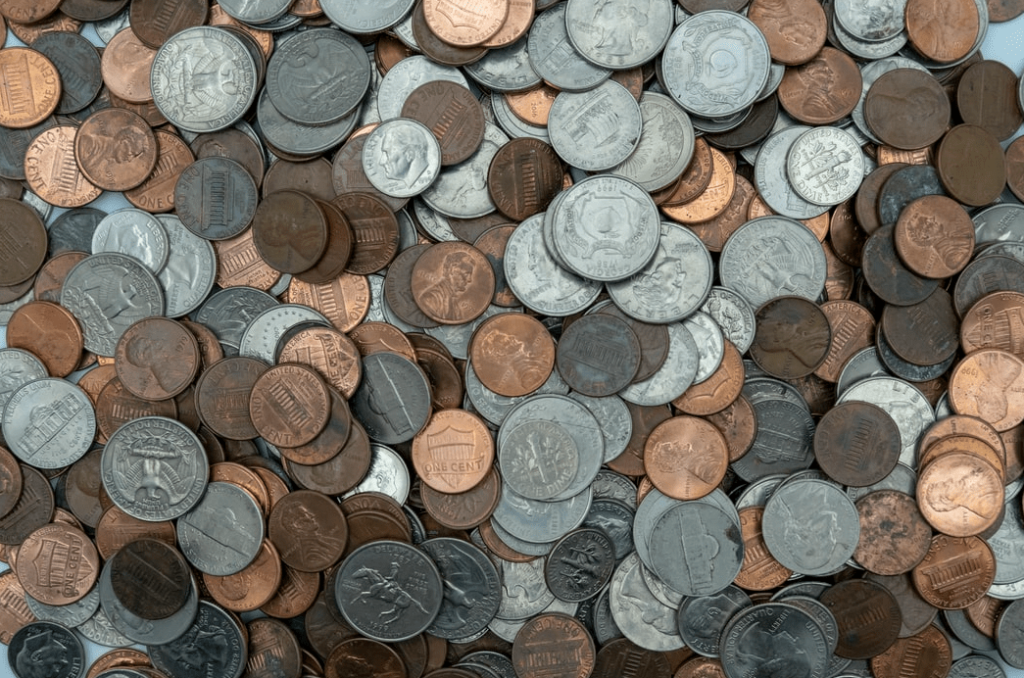
Most Effective Ways to Clean Coins
The good news is that there is a solution available no matter what type of coin. The key is to first know what kind of coin you have. Don’t make the mistake of using something meant for regular coins on something older and more condition sensitive.
Old Coins
Before you do anything, do your research to know the value of the coin. Even more importantly, understand how the condition impacts the value. This way, you can take any preventative measures necessary to clean the coins and retain their value.
Fill up two plastic containers with distilled water and a tablespoon of mild hand soap. You will want to use a soft-bristled brush, one that has been well worn in as well as a soft cloth. Mix your hand soap in with the water, creating a soapy mixture.
Let the coins sit in the mixture for about 10 or 15 minutes so that the soap can break down the grime. Take them out, setting them on the cloth. From there, use your brush to gently get the grime off of the coins before putting them back into the water again. Repeat this process as many times as necessary before allowing the coins to air dry.
Using Sand
This method and those that follow are going to be for everyday coins. Remember, you don’t want to use anything that has abrasive qualities to them because they can scratch the coins.
Start with a mixture of warm, soapy water when cleaning silver coins. Put your solution and a small bit of sand into a watertight jar. Finally, drop the coins in, seal the lid, and shake it. After a good shake, take the coins out and rinse them off.
If they look clean enough, use a soft cloth to dry them. Avoid rubbing where possible as they can scratch and damage the coin’s surface.
Isopropyl Alcohol
A great way to clean coins without doing damage to them is using a bath of salt and isopropyl alcohol. Keep in mind that this is more of an abrasive than even the sand method and can do serious damage without the proper care.
Make a bath using a cup of isopropyl alcohol combined with two tablespoons of salt. Mix it together and add the coins into the bowl. Let them soak for about two hours or so, though if they are extremely dirty, you may want to let them sit for up to a week.
This is the important part: rinse with distilled, not tap water. There are chemicals within the tap water that can erode the coins over time. When they are sufficiently clean, lay them out on a soft cloth, dabbing them dry with gentle pressure. Let them air dry the rest of the way.
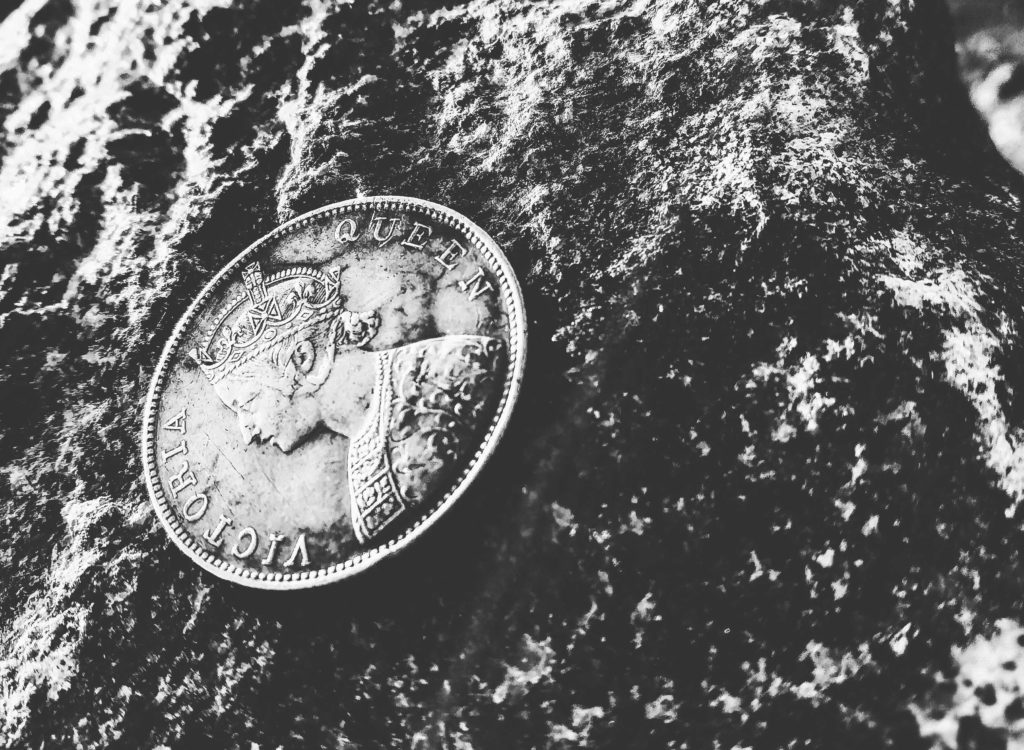
(Srikanth Popuri, Pexels)
Using Olive Oil
If you want to go with something that is both inexpensive and likely already in your home, olive oil is the right choice. The olive oil is good at separating the dirt from the surface of the coin for a thorough cleaning experience, though it takes substantially longer.
Drop your coins in a bowl and cover them completely with olive oil. Let them sit for a month though you may need to let them go for as long as six months. Should the oil start to look discolored, change it out.
When they start to look cleaner, remove them from the bowl. Clean them off using distilled water and soap, using an old toothbrush to scour them clean. You can also use just a touch of olive oil for polishing older coins that have become tarnished. Just make sure that you gently apply the olive oil and you can help prevent tarnish over time.
How To Clean Tarnished or Corroded Coins
Baking soda and vinegar have proven to be one of the most effective ways to clean tarnished coins. Submerge the coins in a shallow bath of vinegar and let them soak for at least an hour. If you don’t have vinegar on hand, filtered tap or distilled water can be used as a substitute.
Retrieve the coins from the vinegar and apply a few teaspoons of baking soda to each coin. Using a toothbrush or other soft-bristled brush, gently scrub the baking soda into each coin, especially on the corroded areas. Wearing gloves will help protect your skin from the cleaning solution.
Rinse the coins thoroughly with water to remove the baking soda and vinegar solution. Allow the coins to air-dry on a microfiber or cotton towel.
It’s important to note that cleaning tarnish off valuable or rare coins can greatly affect their value. Be sure to check with a professional before cleaning a corroded coin that may have significant value.
Cleaning Pennies
As you will come to find out, there are different methods for cleaning different types of coins. You want something a bit more gentle for silver coins but you will need a heavier abrasive for your copper pennies. Here are a few different methods that you can use to get those pennies clean.
There is one important thing to note, though. Pennis that were made prior to 1982 had more copper in them, which can lead to a more intense reaction chemically while cleaning. Make sure that any cleaner you use is rated to clean pennies prior to 1982. When in doubt, refrain from cleaning anything older than those.
Salt and Vinegar
Looking to achieve that bright, orange-copper color? The best method for achieving that is with salt and vinegar. If you don’t have vinegar, lemon juice should work just fine. Create a mixture using ¼-cup vinegar of lemon juice and a teaspoon of table salt together into a bowl.
Make sure that you continue to stir in the salt until it dissolves, then place the pennies in so that they are not stacked in any way. Give them about five minutes to sit, though you can go for another five if they are not quite as bright as you had hoped.
Finally, take the pennies out and rinse them off using distilled water. Remember to not use tap water because the chemicals are bad for the coins. Use your soft cloth to dry them off gently in order to prevent any scratching.
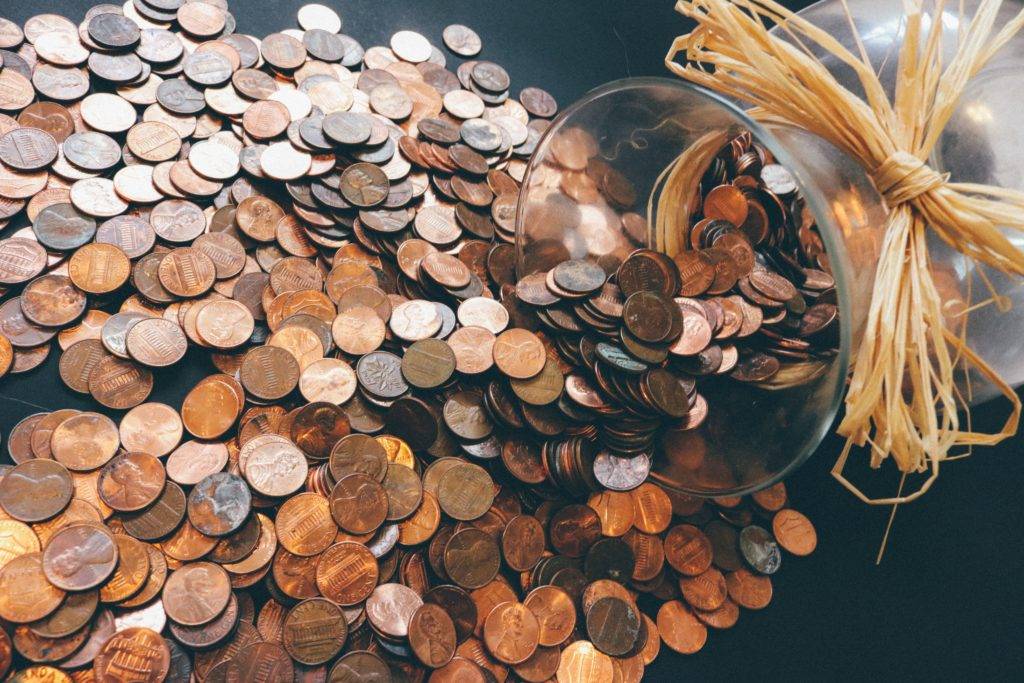
(Pixabay, Pexels)
Baking Soda
Aside from white vinegar, there may not be a more versatile household cleaning agent than baking soda. There are countless things that it can be used for, cleaning old coins and even jewelry among them. It can even be used as a metal polishing solution.
Start with two tablespoons of baking soda, mixing it with water into a bowl. Continue to slowly add water to the baking soda until it takes on the consistency of paste. Grab some past with your thumb and forefinger, rubbing it gently onto both sides of the penny. Make sure to use small, circular motions.
After applying, give it a couple of minutes and then rinse using distilled water. It may take a couple of applications, so don’t be afraid to try this method a few times to get out those tough stains.
Use Ketchup
Believe it or not, you can clean copper coins using yet another household item: ketchup. That is because ketchup has vinegar in it, which is naturally acidic. The acid from the ketchup can help to deal with oxidation as it forms on your coins.
With ¼-cup of ketchup, just dip your old toothbrush in and scrub the surface of the coin. Again, use small circular motions, scrubbing the entirety of the coin for a minute or so. Rinse off the ketchup and inspect the condition of your coins.
Repeat the process as many times as you need in order to get the coins clean. When you have them totally clean, let them air dry and enjoy the bright sheen that your pennies have.
Our Best Tips For Cleaning Coins
- The key is to ensure that you don’t use anything super abrasive, especially on older coins. If you do use an abrasive like vinegar or salt, make sure that you don’t rub the abrasive in as it could scratch up the surface of the coin.
- One of the most important aspects of cleaning old coins is to know the value first. For coins that are not terribly valuable, you can clean them yourself with little to no worry. But anything that you think may have serious value, consult with a professional first. They may be able to advise you on ways to clean the coins or will tell you that they are too valuable to risk damaging.
- To prevent grime buildup, it is imperative that collectible coins be stored in a safe, secure, airtight place. This way, you should not have to worry about cleaning them on a regular basis.
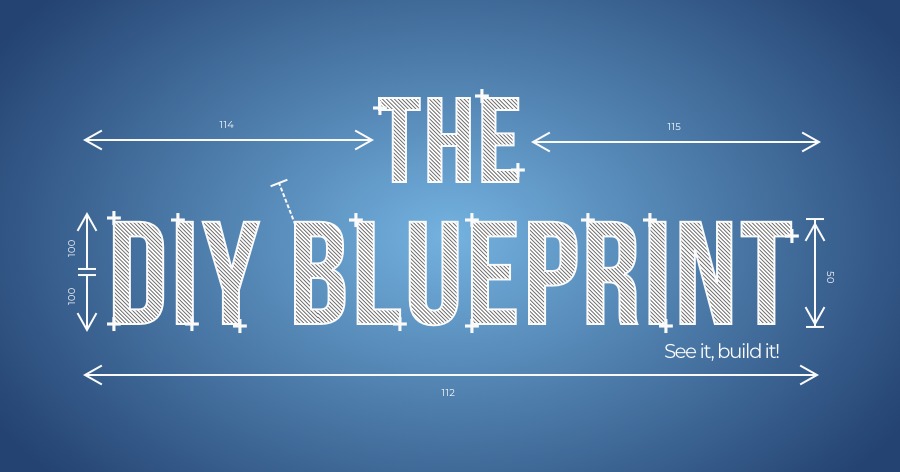
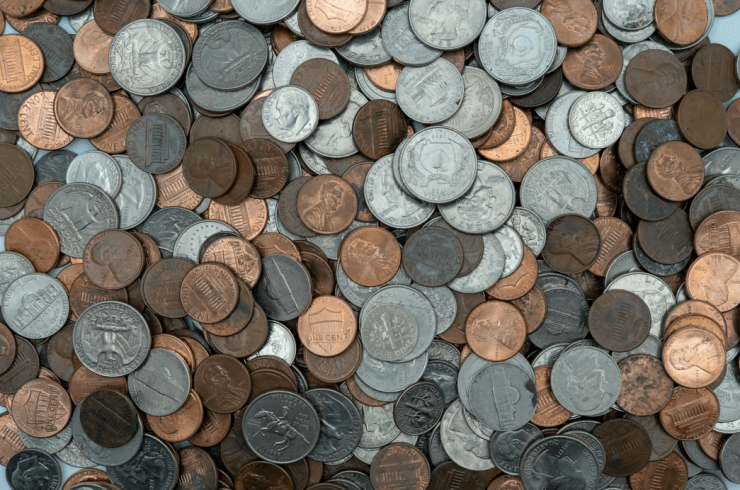

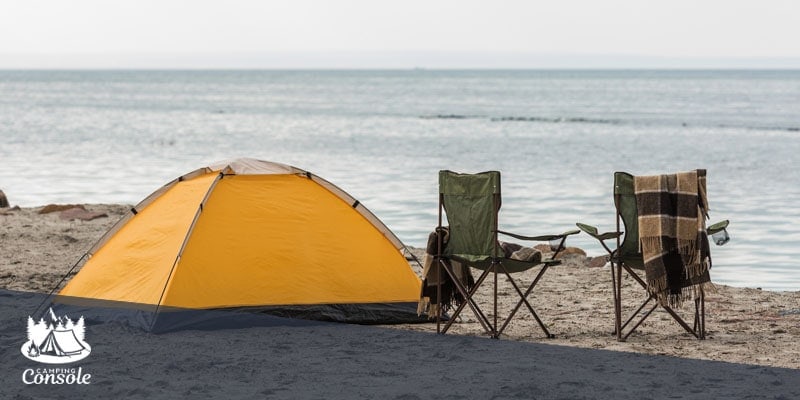


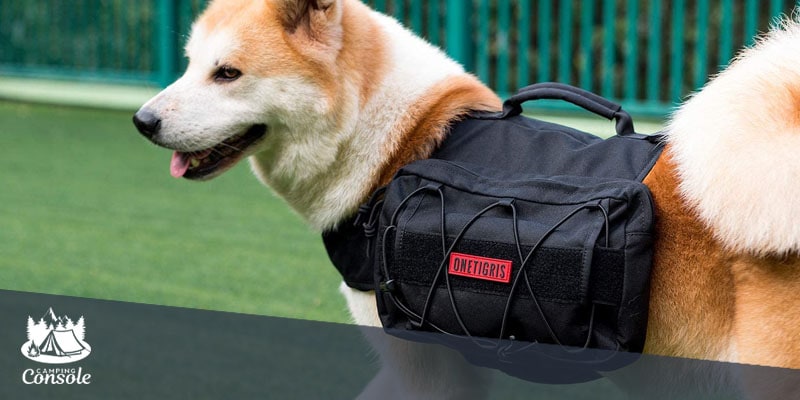


Add comment